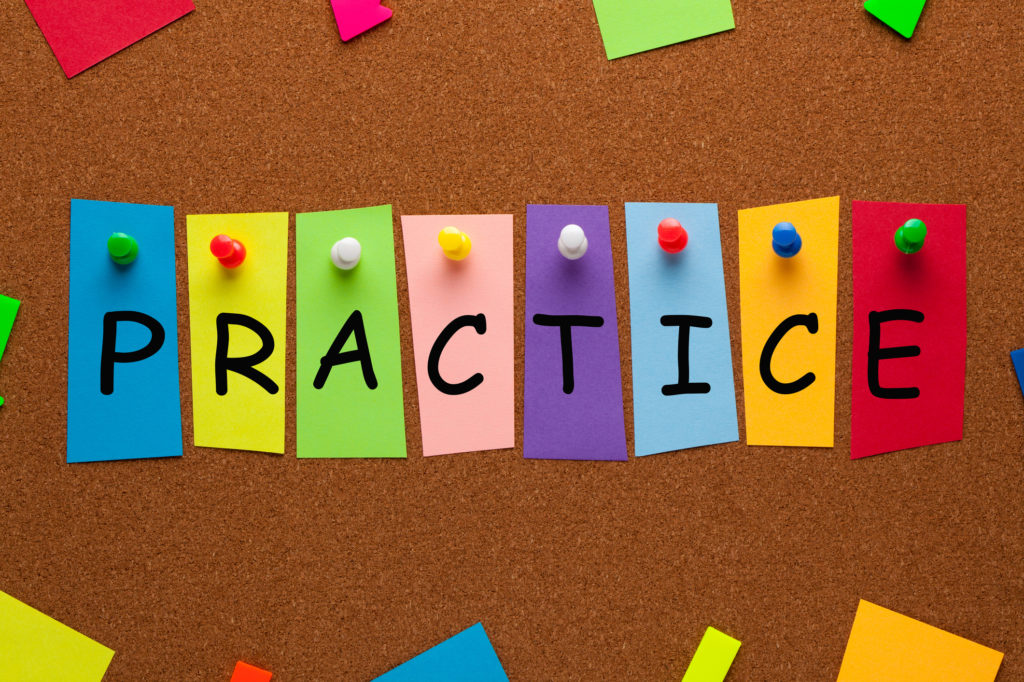
Exhibiting confidence in public speaking is a skill that anyone can possess with the proper mindset and preparation. When you look, sound, and feel your best, you are more likely to connect with your audience, convey your key points with conviction, and get the results you seek.
Although self-confidence comes more naturally to some people, every presenter can learn how to build confidence speaking in public. It starts with accepting the fact that you are not perfect.
Yes, that’s right; no speaker is perfect. But there are plenty of successful ones who can take challenging speaking situations in stride and learn from them. They abandon their fear of failure and embrace new techniques and approaches that help them to become better presenters. This is key to developing confidence in public speaking.
There are many reasons you might have a lack of confidence in public speaking. Perhaps you have a fear of public speaking or are worried that you lack true expertise on a subject. Maybe, you just don’t feel as if you are properly prepared for your talk. There are ways to overcome these obstacles and learn how to become more confident in public speaking.
Before we get into tips and techniques (as well as what causes your confidence to lag), let’s focus on the importance of confidence in public speaking.

Photo by Sydney Rae on Unsplash
Why is confidence important in public speaking?
Whose medical advice would you more likely follow, a doctor who appeared nervous and jittery or one who projected a calm and confident demeanor? We here at the Throughline Group will answer that for ourselves – Doctor No. 2. That’s not to say that Doctor No. 1 wasn’t an authority on the matter or as qualified to deliver advice. The delivery made a difference.
The typical public speaker is not likely delivering a medical diagnosis or treatment plan, but if they hope to convey their authority on a subject or move their audience to act or think differently, they need to be mindful of the confidence that they exude. Researchers have discovered that when you speak with assurance, others generally believe you.
A confident speaker engages the audience in ways a less self-assured one cannot. The former tends to put the audience at ease, and that’s no small thing. If you have ever sat through a presentation with a noticeably flustered speaker who seems ill at ease, it can be an uncomfortable experience.
Gaining confidence in public speaking results in a host of other benefits, too, for the speaker and audience. When you appear (and hopefully genuinely feel) confident, you inevitably are more engaging, and that leads to a better connection with the audience. When you are relaxed and in the moment you can focus on your words and ideas rather than on what could go wrong. This brings us to our last point: Confident speakers tend not to panic when things go wrong – technically or otherwise. That steady leadership invariably impresses those in your audience.
What causes a lack of confidence in public speaking?
 Building self-confidence in public speaking is often a matter of identifying and addressing what causes that lack of confidence in the first place. Is it your fear of public speaking?
Building self-confidence in public speaking is often a matter of identifying and addressing what causes that lack of confidence in the first place. Is it your fear of public speaking?
Several root causes can lead to public speaking anxiety and a dip in confidence. Maybe it’s this: You don’t feel your authentic self and fear you are putting on an act. (Here’s how one of our clients learned how to be a confident speaker by finding her unique voice.)
Here are some other common causes:
![]() Lack of preparation – If you go into a situation feeling less than ready to handle it – whether in public speaking or everyday life – your confidence will likely take a hit. That’s why it’s important to have a firm grasp on your material, as well as the way you deliver it. That takes time and practice. One of the best ways to feel confident is to understand the best practices for structuring and delivering your presentation. If you understand how to open your talk, for example, or how to handle a difficult question, you’ll receive more positive and attentive audience feedback, which will help bolster your confidence and propel you through your talk.
Lack of preparation – If you go into a situation feeling less than ready to handle it – whether in public speaking or everyday life – your confidence will likely take a hit. That’s why it’s important to have a firm grasp on your material, as well as the way you deliver it. That takes time and practice. One of the best ways to feel confident is to understand the best practices for structuring and delivering your presentation. If you understand how to open your talk, for example, or how to handle a difficult question, you’ll receive more positive and attentive audience feedback, which will help bolster your confidence and propel you through your talk.
![]() Doubt over your expertise – Ideally, you wouldn’t be asked to or volunteer to give a presentation based on information that you have little knowledge about. More than likely, you do know the material inside and out but are letting your insecurities get the better of you. In other words, you are suffering a case of the “Imposter Syndrome,” the fear of being exposed as underqualified, undeserving, or even a fraud. It’s OK to have doubts, but before your next talk, do an honest appraisal of your expertise. Bulk up your expertise where necessary, but don’t let your unrealistic worries sabotage your presentation.
Doubt over your expertise – Ideally, you wouldn’t be asked to or volunteer to give a presentation based on information that you have little knowledge about. More than likely, you do know the material inside and out but are letting your insecurities get the better of you. In other words, you are suffering a case of the “Imposter Syndrome,” the fear of being exposed as underqualified, undeserving, or even a fraud. It’s OK to have doubts, but before your next talk, do an honest appraisal of your expertise. Bulk up your expertise where necessary, but don’t let your unrealistic worries sabotage your presentation.
![]() Audience dynamics – Maybe you already know your audience is hostile to your ideas or proposed actions, or simply hesitant to embrace them. Maybe you are confident in your material and ability as a speaker, but wonder if differences between you and members of your audience in terms of age, life experience, or professional background will pose a challenge to establishing authority. Identifying potential disconnects before your talk and finding ways to shrink those gaps will lead to a more successful talk and a more confident delivery.
Audience dynamics – Maybe you already know your audience is hostile to your ideas or proposed actions, or simply hesitant to embrace them. Maybe you are confident in your material and ability as a speaker, but wonder if differences between you and members of your audience in terms of age, life experience, or professional background will pose a challenge to establishing authority. Identifying potential disconnects before your talk and finding ways to shrink those gaps will lead to a more successful talk and a more confident delivery.

How to Be Confident in Public Speaking
We’ve already offered a few tips on how to improve your confidence in public speaking, but there are many other ways you can boost your belief in yourself and your material. How to develop self-confidence in public speaking takes a multipronged approach – from your eye contact with the audience to your use of humor.
Confident speakers focus on clarity and conviction in their delivery and display the right body language. They also focus on their audience, rather than dwelling on their flaws and potential slip-ups.
When we ask participants in our public speaking training sessions what makes them anxious, they often list a litany of fears – making an embarrassing mistake, forgetting a key point, disappointing their boss, or becoming flustered by an unexpected question. If you are approaching your presentation from a self-focused perspective, it’s time to redirect your attention to the audience. We’ve seen presenters gain confidence when they focus on how they can address the needs of their audience or help them to solve their problems rather than dwell in their anxiety. In other words, when you focus on someone else’s concerns, it’s hard to remain focused on your own.
In the following sections, we delve into how to improve confidence in public speaking.
Make Eye Contact (But Don’t Overdo It)
In everyday life, we rarely maintain unbroken eye contact when we look at or engage in conversation with others. It can be a bit direct for most people, if not a little creepy. Still, the more effective speakers strive to maintain eye contact with their audiences for the majority of their talks. As researchers discovered, lack of eye contact could be a clue that a speaker is unsure of themselves. To build up that confidence, don’t worry so much about the exact duration of your gaze.
Employ this rule: If you are talking, you should be looking into somebody’s eyes. But not the same person’s eyes for the entire time!
As you move your eyes around the room, connect briefly with an audience member and then move to another. (Here are some additional tips for establishing eye contact.)
Use Assertive Body Language
Your body movements can be as “audible” to your audience as your words. You want your physical presence to convey that you feel comfortable and in control. It not only affects how your audience sees you but how you feel about yourself. For instance, one study found that students who sat upright (as opposed to slouching) not only exuded more confidence to observers but felt more confident about themselves. As a presenter, the simplest way to exude that confidence is to stand upright and avoid slouching. You should appear relaxed (not standing at attention), with your soldiers squared, as you directly face the audience. It’s a stance that breeds competency as much as connection and can help you to feel confident throughout your talk. (Learn more about effective body language.)
How to Sound More Confident
During a presentation, it’s not only what you say, but how you say it that can make a difference. Researchers have found that adjustments to your voice – just how high, low, fast, slow, loud, or soft you go – can have an impact on those who are hearing it. In one study, speakers who were trying to persuade others tended to speak louder and vary their volume. They appeared more confident, making them more persuasive. Turning the volume up or down isn’t your only tool, however. Another study revealed that speakers who spoke at a faster clip, with a lower pitch, and ended their sentences declaratively were perceived as more confident. That’s all to say it’s important to pay as much attention to your actual words as to the volume, pitch, pace, and tone of how you say them. (Here are some additional tips on how to speak confidently in public speech.)

Be Funny (But Not Too Funny)
Everyone likes a good joke, right? But not everyone can tell one. If you plan on using humor in your presentation – and it can be an effective strategy to connect with your audience and put them at ease – just be spare and careful in your delivery. Remember this: You are not a standup comic but rather a presenter who is looking for places where humor – not jokes – will serve your message. Amusing anecdotes and memorable quips, for instance, delivered confidently are effective. Look to see if you can open or close with a funny story – as opposed to a joke. Self-effacing humor can work, too. Just know it’s a fine line between laughing at your own expense and knocking your expertise. Steer clear of humor that questions your credibility, reveals weaknesses, or downplays the subject of your talk.
Don’t Fixate on Mistakes – Keep Going
One of the greatest ways to bring attention to an unexpected challenge is to bring attention to it. To err is human, and most audiences are often happy to get past a speaker’s flub if the speaker quickly gets past it, too. If you don’t and you become hung up on the one slip up, that anxiety could easily lead to more mistakes and missteps. You know your material inside and out, so the exact words are not as important as keeping that connection with the audience. If you happen to flub a line, forget a point, or advance to the wrong slide, you calmly and confidently address it and move on.
Start Building Confidence in Public Speaking!
Work with our experienced Throughline Group trainers to gain the tips and strategies to boost your communication skills. Sign up for our public speaking workshops today!!
Tips to Gain Confidence in Public Speaking
You’ve learned several strategies on how to appear more confident to your audience, but those strategies work best when you actually feel confident. It may sound counterintuitive, but one of the best ways of learning how to gain confidence in public speaking is to let your confidence take a ding from time to time. The more you’re willing to be seen as imperfect (not sloppy, but human) and laugh at your foibles, the better you’ll become.
During our custom presentation training workshops, we’ve seen many clients become stronger and more confident speakers when they finally let go of their fears of making a mistake and instead just go for it. The problem is when a speaker is too restrained and tentative, they not only fail to exude confidence, but also are often less than effective in engaging the audience and establishing a productive rapport.

The best way to get to a point where you are vulnerable and willing to make mistakes is to use any preparation or practice time to your best advantage. Try a new technique, speak extemporaneously, explore the extremes of your vocal range, or accept that things can and do go wrong. You also want to develop the mindset that even with the best preparation a mistake can and often does occur. And, as we have already covered, it’s best to just let it slide and continue with your talk. Such a reaction will only make you stronger.
Here are five ways to prepare:
 Rehearse When You’re Alone
Rehearse When You’re Alone
Even the most seasoned speakers continuously seek ways to improve. Practice is just one of them. As to how long to practice, there is no one correct answer. For many, it is whatever time is enough to be prepared but not overly rehearsed. Others prefer several full run-throughs. Often, it is a matter of practicing enough to know the flow of your material so that you sound fresh and not canned. That is when you have internalized rather than memorized your material. Speakers with a firm grasp of their material can present it with an ease that projects confidence and authority.
 Record Videos of Yourself and Critique Them
Record Videos of Yourself and Critique Them
Have you been told to rehearse into a mirror? We generally advise against it. It’s more effective to videotape yourself. Whether you record yourself on a camera or through your smartphone, make the most of your self-critique by focusing on areas that will help you to deliver your information in the most authentic, compelling, and effective manner possible. Here are some questions to ask:
- Do I appear engaged and enthusiastic about my topic?
- Am I making good eye contact with my audience?
- Do I come across as energetic and present?
- Are any of my mannerisms distracting? Do I look as if I am fidgeting?
In addition to capturing video, creating a separate audio recording can help you to zero in on your vocal cues – which can have a bearing on how confident you sound to your audience. Here are some things to listen for:
- your pace, pitch, and tone
- the passages where you stumbled and those where you were most effective
- the level of energy you conveyed through your voice
After your review, identify two or three things you want to change and do another practice run. If you feel you have improved, and have the time, add another one and practice again.

 Practice Speaking in Front of Family and Friends
Practice Speaking in Front of Family and Friends
It’s best not to show up in wrinkled clothes for a formal occasion. Similarly, doing several practice sessions before family, friends, and colleagues, allows you to iron out any kinks in your presentation before you go “live.” During these trial runs (whether in-person, virtually, or through an audio or video recording), ask for the kind of constructive criticism that will help you to improve. Were you clear in your call to action? Were your visuals helpful in clarifying and enhancing your key points? Did you come across as confident and at ease? Don’t pass up the opportunity to identify areas to improve before your next talk. (Here are 20 questions you can ask at your next practice session.)
 Attend Public Speaking Events and Ask Questions
Attend Public Speaking Events and Ask Questions
Become more experienced as a public speaker. Nothing beats doing it. There’s nothing wrong with steering clear of high-risk, high visibility speaking events as you build your chops as a speaker. But you should make every effort to get out there and seek low-risk opportunities that will help you to learn how to feel confident public speaking. Just as you learn by doing, you also can learn by seeing. Find speaking events to attend or watch effective presentations online. You can find tips and strategies online, including our blog which routinely posts best practices and strategies to be a more effective speaker. Simply put: If you are aware of effective techniques and know how to use them, you will be a more confident speaker.
 Take Public Speaking Courses
Take Public Speaking Courses
At its most basic, the benefit of taking a public speaking class is that it helps you to be your best self when it comes to speaking to audiences. It can help you to, ultimately, learn how to be a confident public speaker. Experienced trainers can zero in on the skills and techniques that would uniquely help you to gain the confidence to prepare and deliver a successful talk. Not every strategy works for every person. If you try to employ strategies or tips that don’t apply to your particular needs, personality, or delivery style, then you can lose confidence rather than gain it.
Sign Up for a Throughline Public Speaking Skills Workshop
Join us for fast-paced, fun, and highly effective sessions designed to produce immediate results.